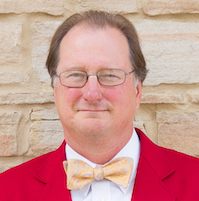
Mark D. Hill, University of Wisconsin-Madison
The Association for Computing Machinery (ACM) and IEEE Computer Society just jointly announced that Computing Community Consortium (CCC) Chair Mark D. Hill of the University of Wisconsin-Madison is the recipient of the 2019 Eckert-Mauchly Award!
The Eckert-Mauchly Award was initiated in 1979 and is administered yearly by ACM and IEEE Computer Society. The award is given for contributions to computer and digital systems architecture and is considered a lifetime achievement award for computer architecture. The award was named for John Presper Eckert and John William Mauchly, who collaborated on the design and construction of the Electronic Numerical Integrator and Computer (ENIAC), the pioneering large-scale electronic computing machine, which was completed in 1947.
From the ACM press release:
In the 1980s Hill developed the “3C” model of cache misses. A “cache miss” is an instance when data requested for processing by software or hardware is not found in the computer’s cache. Cache misses can cause delays as the program or application must then access the data elsewhere. Hill’s 3C model classified these misses into “compulsory misses,” “capacity misses,” and “conflict misses.” The model was influential, as it led to important innovations such as victim caches and stream buffers, and is now a standard concept in computer architecture textbooks.
Many regard Hill’s work in in memory consistency models as his most significant contribution. With his student Sarita Adve, he developed SC for DRF: a consistency model using sequential consistency (SC), where data races can be avoided (data race free, or DRF). Hill’s SC for DRF model has had significant impact for computer architects, especially as multiprocessors became ubiquitous and architects had to reason about which memory consistency model to use in their architectures and implementations. Years after Hill developed SC for DRF, it became the basis of Java and C++ memory models and, more recently, is being used with graphics processing units (GPUs) to understand memory consistency with heterogeneous processors.
Hill’s third major contribution is his work in transactional memory, a technique to minimize blocking due to critical sections. With David Wood he developed the LogTM transactional memory system, one of the first and widely-cited approaches to transactional memory. For the first time, this system enabled transactions to overrun their buffer and cache capacities, making transactions significantly easier for programmers to implement.
He will be formally recognized with the award at the 46th International Symposium on Computer Architecture (ISCA) to be held June 22-26, 2019 in Phoenix, Arizona.
Congratulations, Mark!









